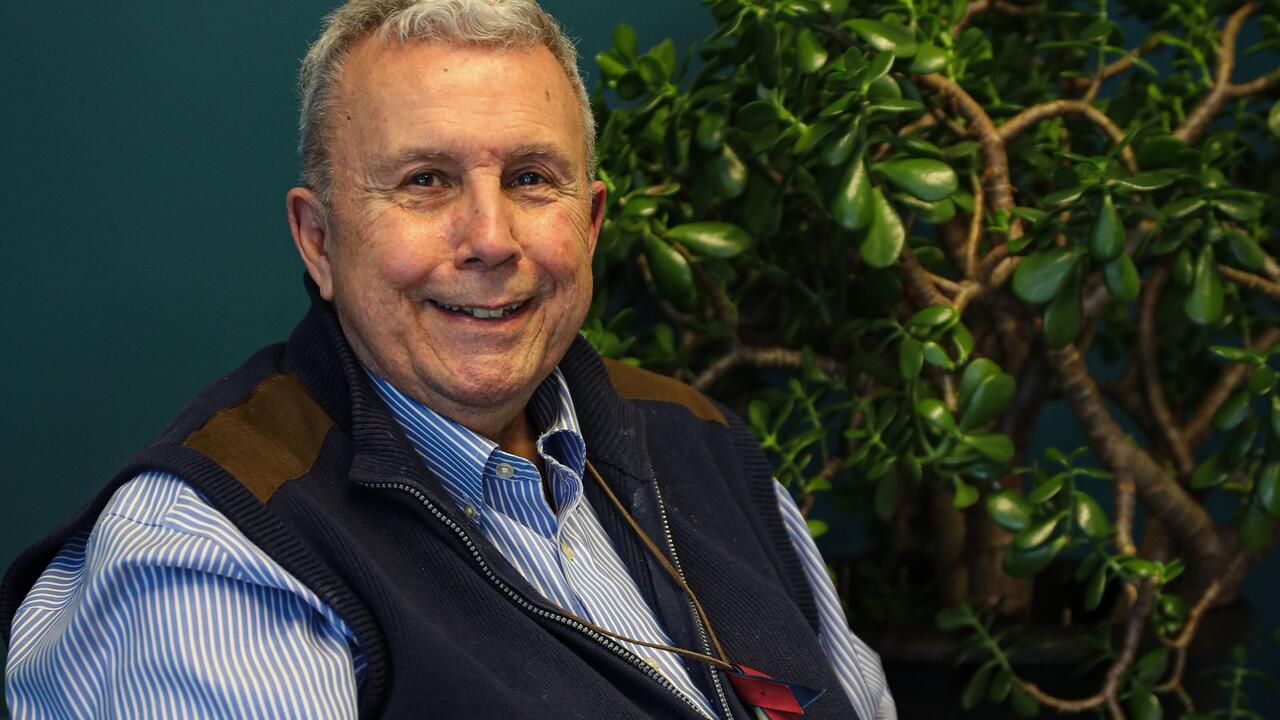
Sharing his heritage
Engineering's Elder in Residence offers courses and counselling grounded in his Indigenous background

Engineering's Elder in Residence offers courses and counselling grounded in his Indigenous background
By Carol Truemner Faculty of EngineeringPassionate about sharing his Indigenous heritage, an adjunct architecture professor named a new course after the ceremony his ancestors have used for thousands of years to welcome visitors to their homeland — At the Woods Edge.
This semester, William Woodworth, also known as Elder Bill, started teaching the course focused on the relationships between Indigenous peoples and settlers from the 16th century to today, and how those associations have affected both engineering and architecture.
Woodworth’s offering draws, in part, on his background as a member of the Lower Mohawk Kanien'kehá:ka Nation of Six Nations of the Grand River in the Bear Clan.
In the mid-1990s, he had the opportunity to apprentice with Cayuga Chief Jacob Ezra Thomas Deyohonwedah of the Six Nations of the Grand River Territory where he was immersed in the Haudenosaunee practices and culture.
Born in the United States, Woodworth completed an architecture degree at the University of Michigan, Ann Arbor.
Building on his architectural education, he launched William Woodworth Architect in Toronto in 1980 and practiced as a member of the Ontario Association of Architects, and the Royal Architectural Institute of Canada.
In 1993, he took a sabbatical to teach at the Lawrence Technological University outside of Detroit. From there, he began doctoral studies at the California Institute of Integral Studies in the program Recovery of the Indigenous mind and graduated in 2001.
About a decade ago, Rick Haldenby, then director of the School of Architecture, hired Woodworth to teach Twelve Architectures, a course that grew out of 12 lectures he developed to tell the history of the Haudenosaunee from creation to the present day.
“The lectures came to me in kind of a dream so there’s a visionary quality to them,” Woodworth says. “Haudenosaunee means people who build a long house, which means we’ve been given in creation an architectural imperative.”
Earlier this year, Woodworth was appointed to a new role within the Faculty of Engineering – Elder in Residence.
Woodworth provides faculty, staff, and students with culturally sensitive counselling based on Haudenosaunee teachings at his two offices – one in the Outreach department located on the first floor of Engineering 7 and the other in the second-floor library at the School of Architecture in Cambridge.
“If you sit with an elder, you usually come with a reason and we provide a safe place to talk about sensitive things,” Woodworth says. “You usually have some questions either about your student life or your personal life – there is no difference between the two in native culture.”

William Woodworth offers counselling based on Haudenosaunee teachings.
Quick to point out he is not a licensed therapist, Woodworth’s advice is usually grounded in nature.
A few months ago, a co-op student spoke with him about the confusion and unhappiness she was experiencing working for a Vancouver company whose values didn’t align with hers.
Instead of telling her what to do, Woodworth suggested she go into nature and talk to a tree.
“It was simple advice but completely from the native mind,” he says. “A tree is a living, sensate being that can listen and listen quietly and receive you with no judgment.”
The student reported to Woodworth that she followed through on his suggestion and found it helpful.
Central to Woodworth’s teachings and counselling sessions is his wampum belt he designed and built from white and purple tubular shells.
The wampum belt is significant because it represents the first peace treaty made in North America between all Indigenous nations before the arrival of Europeans.
“I let my students spread it out on a table before the class begins so they’re immediately engaged in a tactile way with the culture,” he says. “It’s very unassuming but very powerful at the same time.”
Woodworth, who participates in the University’s Indigenous Advisory Group, says Waterloo is at “a remarkable and transformative moment” with the addition of Indigenous Elders and courses across campus.
“I think what I’m doing is critical to a good future,” Woodworth says. “If just one of my students is transformed by my courses or helped by my counselling, that student can make a huge difference later in their life.”
Engineering students, staff and faculty are welcome to book a remote or in-person appointment with Elder Bill.

Read more
How Doug Kavanagh’s software engineering degree laid the foundation for a thriving career in patient care

Read more
Redefining capstone learning by bringing students, faculty and community partners together to tackle real-world challenges

Read more
Waterloo student launches Colare through co-op and entrepreneurship programs to reimagine recruitment for engineers
The University of Waterloo acknowledges that much of our work takes place on the traditional territory of the Neutral, Anishinaabeg, and Haudenosaunee peoples. Our main campus is situated on the Haldimand Tract, the land granted to the Six Nations that includes six miles on each side of the Grand River. Our active work toward reconciliation takes place across our campuses through research, learning, teaching, and community building, and is co-ordinated within the Office of Indigenous Relations.